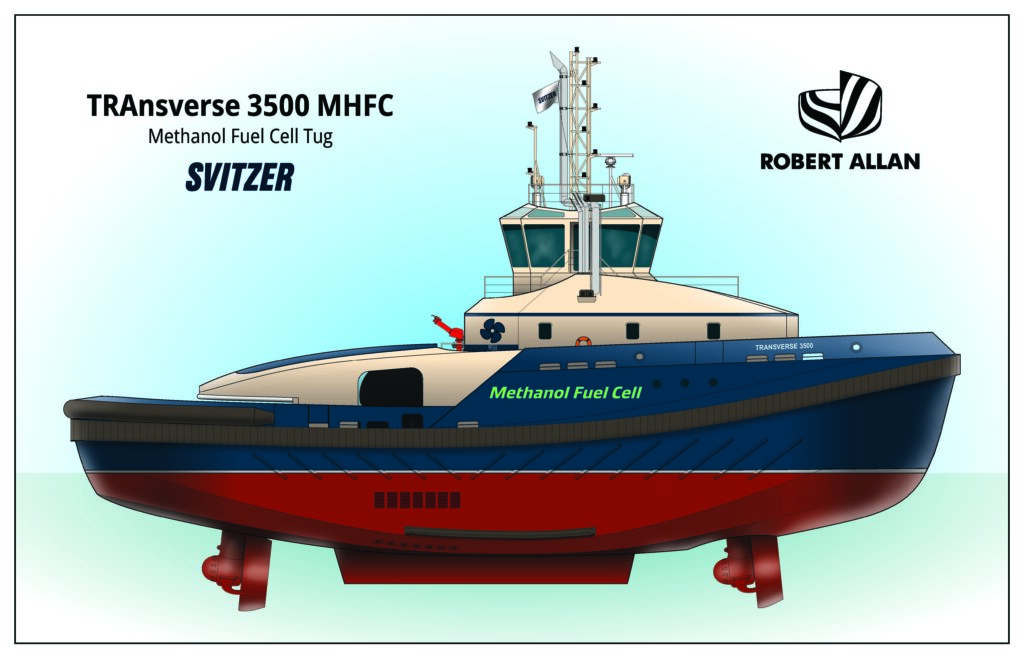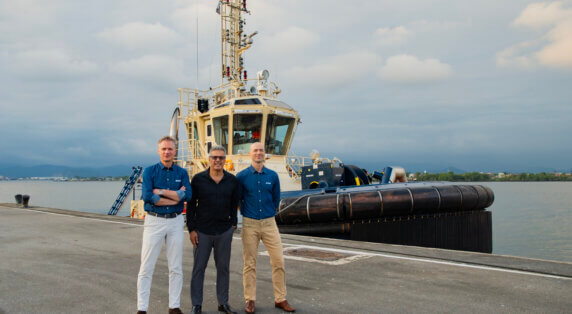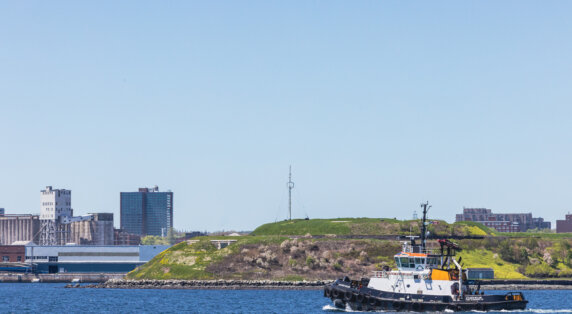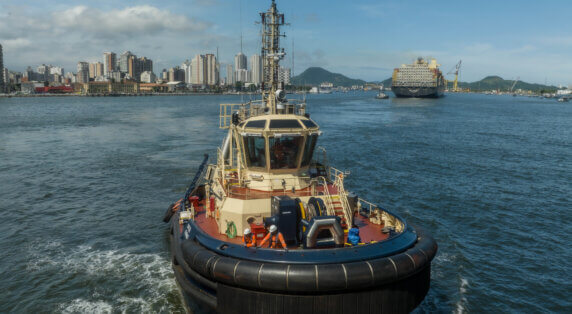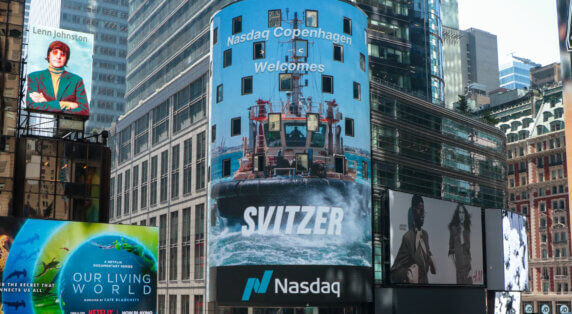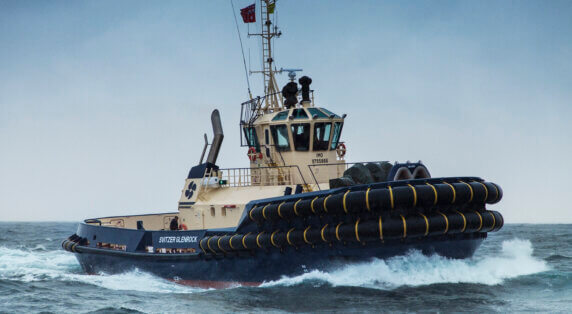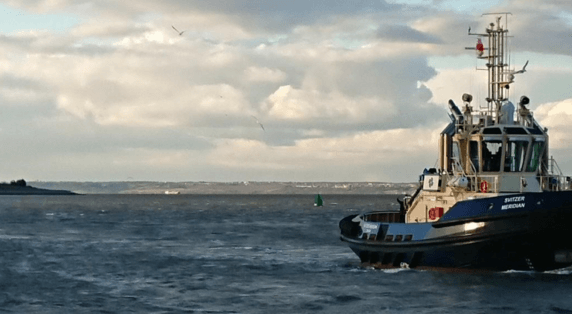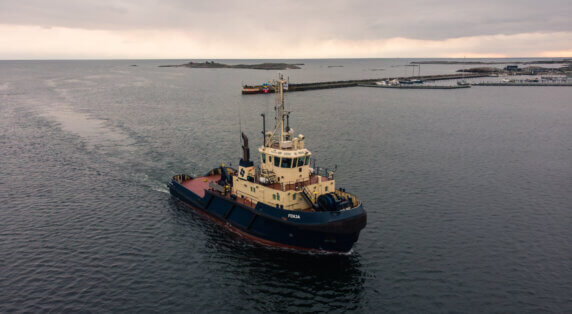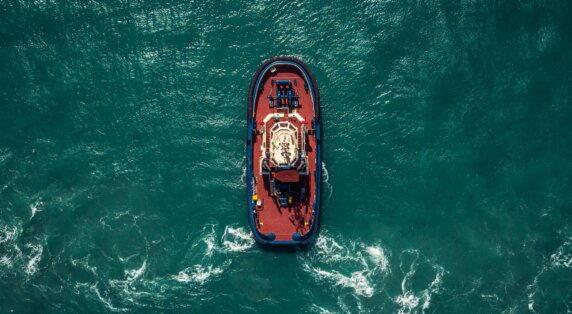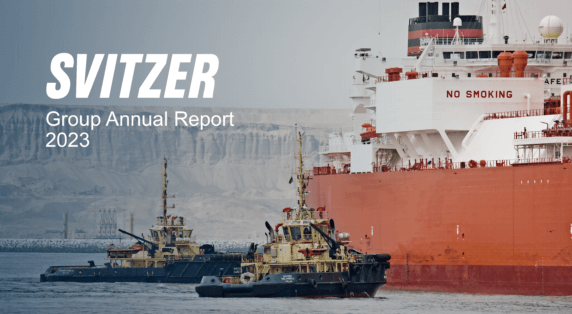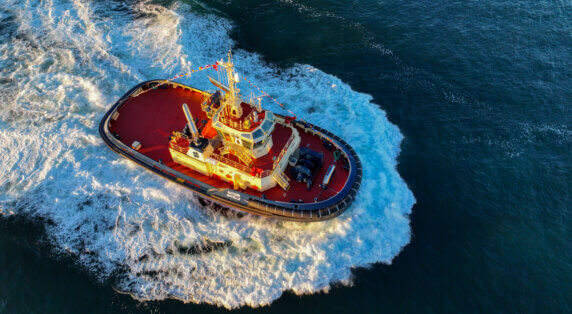Decarbonisation
LEADING THE DECARBONISATION OF GLOBAL TOWAGE SERVICES
At Svitzer, we have set ambitious yet realistic targets to decarbonise our global operations to the benefit of our customers, the communities we are part of and our planet.
We are already on track to deliver on our 2030 target of reducing the CO2 intensity of our global fleet by 50%. And by 2040, our global operations will be climate neutral.
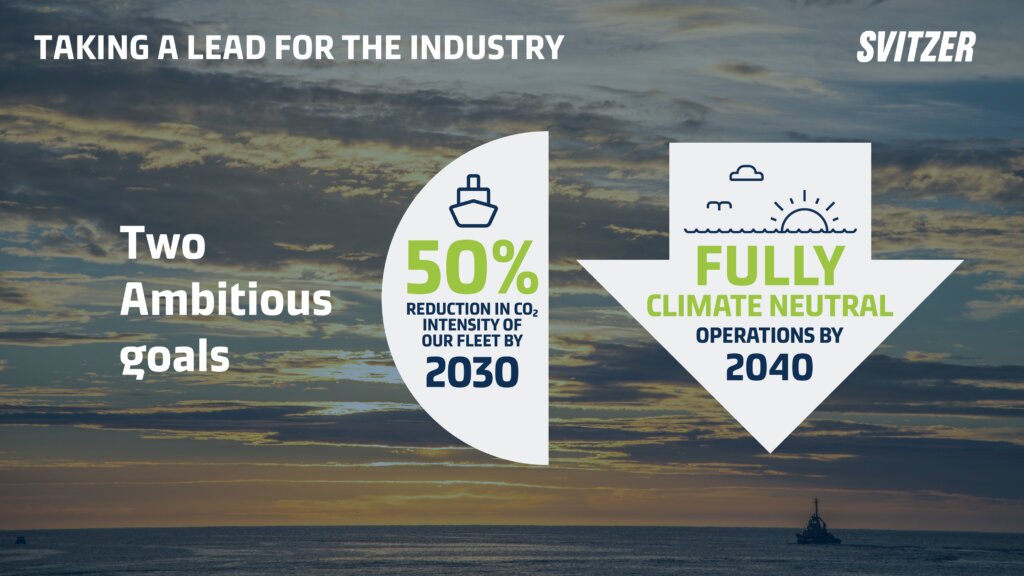
Our decarbonisation strategy
With 450+ vessels operating in 140+ ports and in 40+ oil and gas terminals globally, we have an important role to play in leading the decarbonisation of our industry.
In 2022, we launched a decarbonisation strategy to set out a clear path for how to deliver on our long-term decarbonisation targets. The strategy focuses on three areas which enable us to not only make impactful, short-term changes, but also to develop data-driven and innovative solutions that will drive further emission reductions in the future. These three areas are:
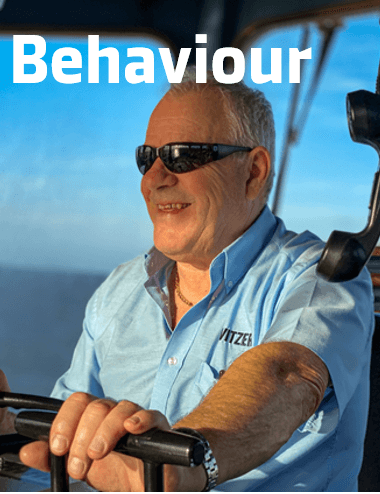
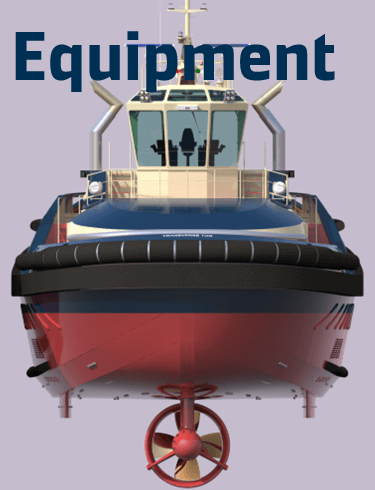


EcoTow: helping customers globally to decarbonise
Across our markets and regions, customers look to Svitzer for data, insights and solutions that help them decarbonise.
Through Svitzer EcoTow, our very low-carbon insetting solution, Svitzer provides customers with immediate, certified and audited scope 3 CO2 emission reductions. Verifiable reductions which are easily embedded into your ESG reporting.
World’s first methanol hybrid fuel cell tug
We are building the world’s first methanol hybrid fuel cell tug (MHFC). Running on green methanol, this ground-breaking new vessel will save approximately 1,300 tonnes of CO2 from being emitted into the atmosphere, compared to fossil-fuel-based tugs of the same size, when it enters operations in 2025.
